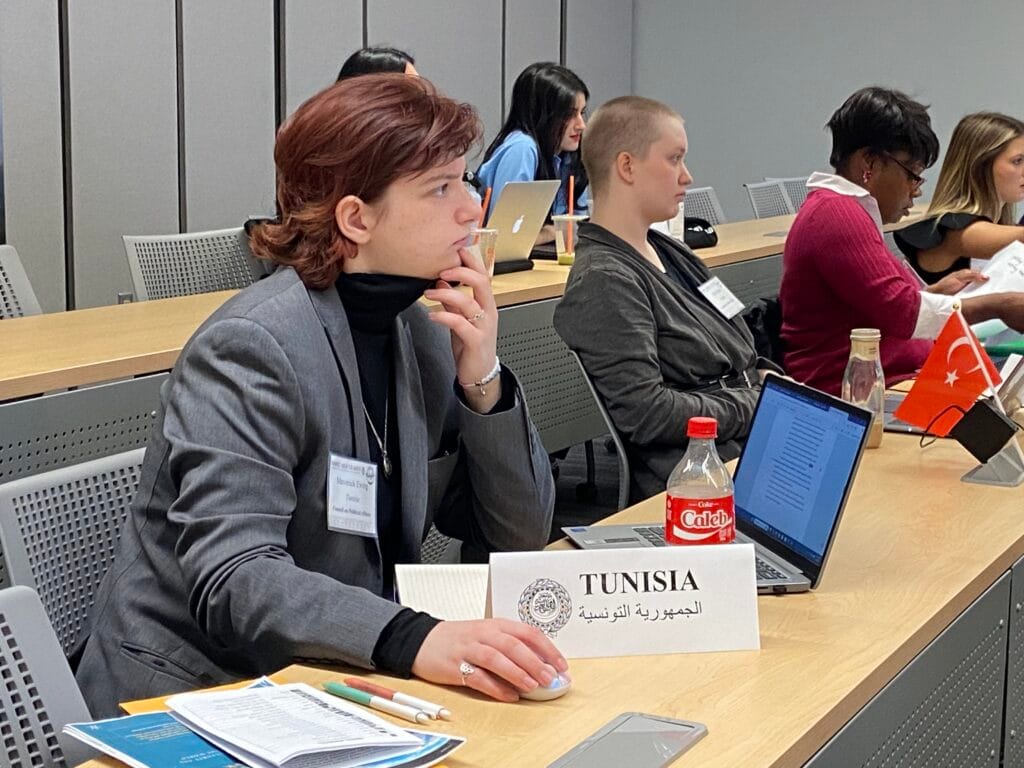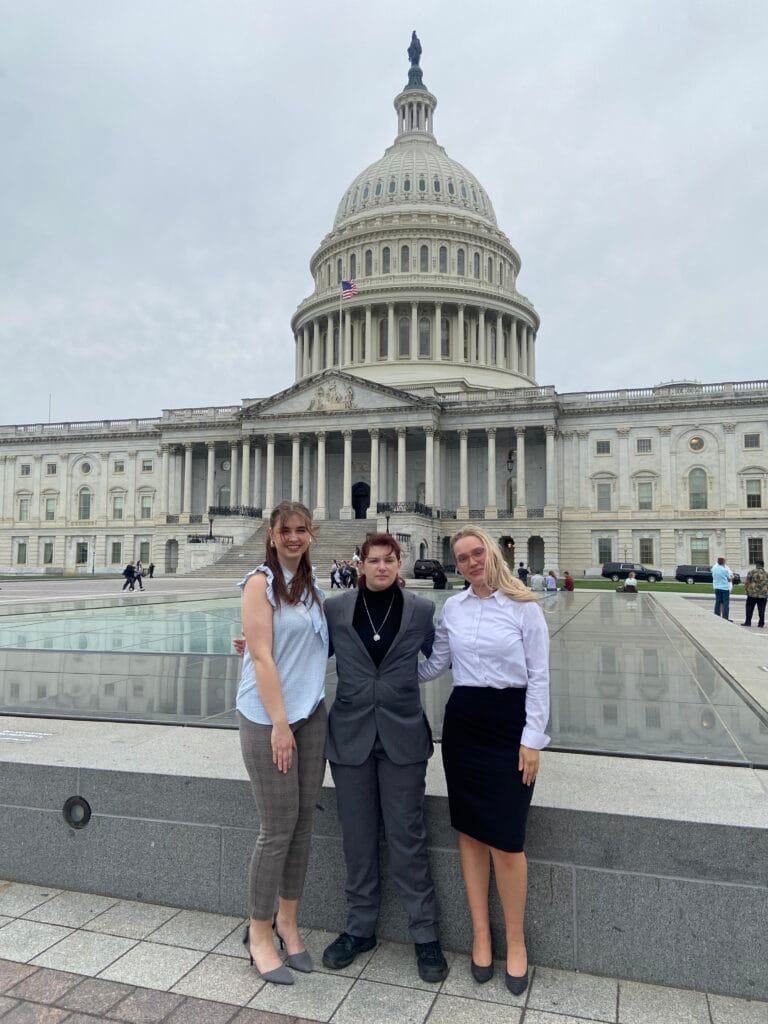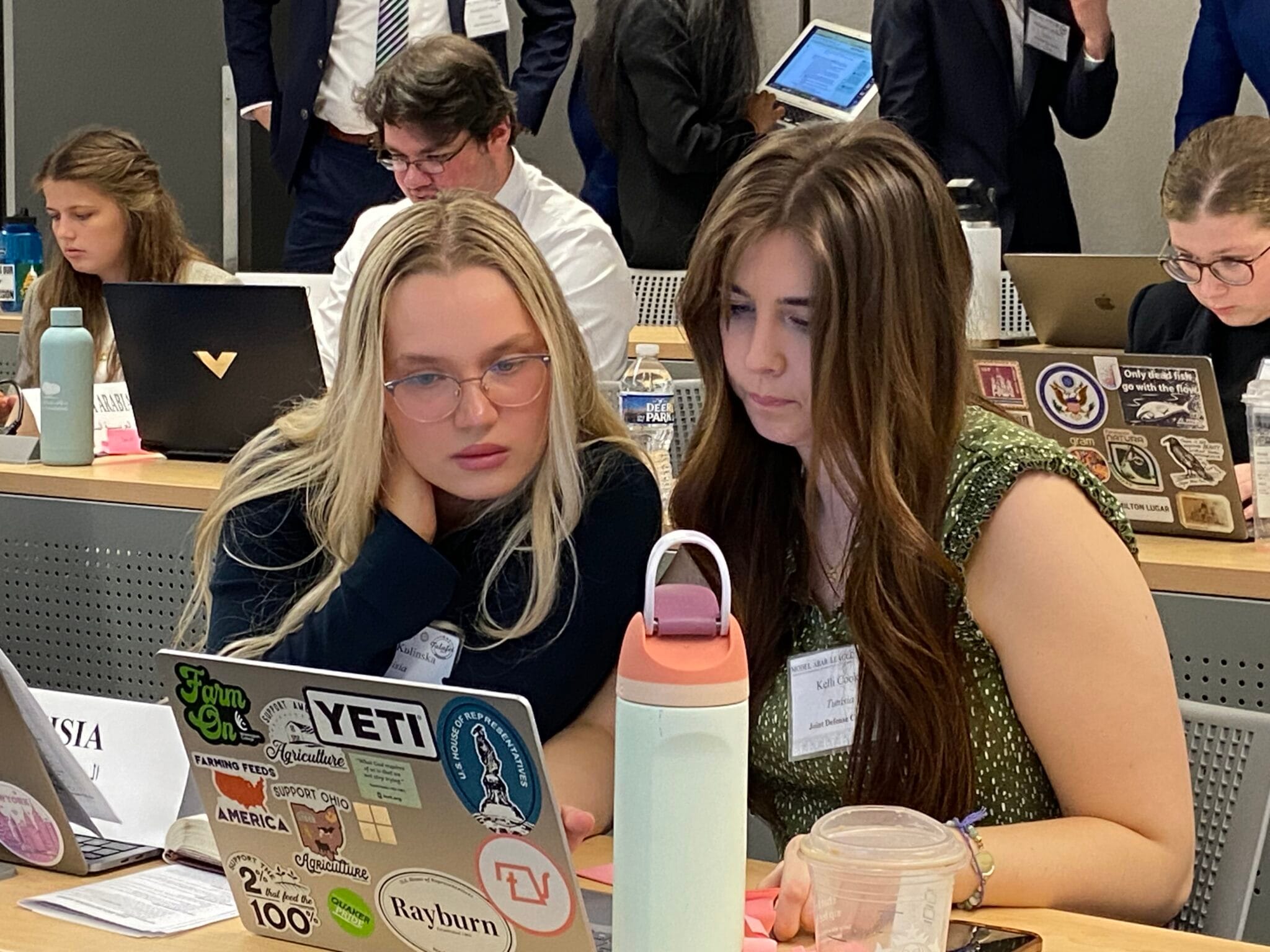Most American college students grow up exclusively viewing the world through the lens of the United States, a global economic and military superpower with interests spanning all seven continents and extending into outer space. Participation in the Model Arab League this year by Wilmington College students gave them a glimpse into a vastly different world, the sunbaked, sparsely populated North African nation of Tunisia.
The College is affiliated with the National Council on U.S.-Arab Relations’ Model Arab League, which offers simulated summits that dig deep into the politics and history of the Arab world.
The Model Arab League is not a traditional competition – no group of students representing a country actually wins, although there are individual awards. Rather, it’s an exercise in convincingly presenting researched facts from the perspective of one’s assigned country. “Our students learn firsthand what it feels like to be in the shoes of Arab diplomats. They gain a deeper knowledge of the Arab world and its people,” said Dr. Marlaina Leppert-Miller, associate professor of political science and faculty adviser. “As our students gain this information, they also gain an empathy for the Arab world.”
The history and culture of Tunisia, a country of 12 million, are deeply intertwined with the Arab world, yet it has ties with other African nations. Arabic is the primary spoken language. Tunisia borders the Mediterranean Sea and the Sahara Desert. The nation has experienced dire economic straits in recent years and the International Monetary Fund anticipates per capita income to fall to $3,000.
The Wilmington College trio of Kelli Cooke, Zuzanna Kulinska and Maverick Ewing served as Tunisian delegates at this year’s 2025 National University Model Arab League held earlier this spring in Washington, D.C. Interestingly, the WC contingent “joined forces” with the U.S. Military Academy at West Point to represent Tunisia in the various councils. Ironically, it was WC’s Cooke and Kulinska who portrayed Tunisian delegates on the Joint Defense Council while Ewing worked on the Political Affairs Council.
The event simulated a meeting of the United Arab League, which is a confederation of 22 Arab states pledged to cooperate on economic and military affairs. The Model Arab League proceeded as a business meeting in which all representatives were heard from. The various councils meet individually and include Joint Defense and Political, Economic, Technology & Development and Social Affairs councils, as well as the Palestinian Affairs Council, the Summit of Arab Heads of State and the Arab Court of Justice.
Leppert-Miller teaches a two-credit-hour course, Political Simulation Practicum, which is designed to help prepare students for the experience but is not required for participation. “I was very proud of the engaged and professional way in which these students represented themselves and the College during the conference,” she said, stressing the hands-on learning opportunities inherent with the program.

WC's Maverick Ewing served on Tunisia's Political Affairs Council. The College's participants teamed with West Point in representing Tunisia in the simulation.
“The skill development component of The Model Arab League is incredible. It involves research, writing, organizational skills, learning about current topics, public speaking, thinking skills, diplomacy and the art of reasoned argument and spirited debate,” she added. “We as Americans are concerned about issues like terrorism, women’s rights, use of drones, artificial intelligence and the plight of refugees — all have been part of American foreign policy.”
Leppert-Miller started the program at the College in 2017 and the next year took her students to Morocco for the international version, which featured both the competition and a cultural immersion. They went on excursions in Rabat and Marrakesh, with their vibrant culture and historical landmarks, camel rides in the desert, shopping at bazaars and much more. She said the international component lost momentum during the COVID pandemic, but she hopes to return abroad with students soon.
“Some of my students who went to Morocco in 2018 have told me they’re still in touch with people they met on that trip. A lot of community has been built through the program,” she said. Indeed, WC program alumni Jese Shell and Lily Austin helped this year’s team prepare for the Ohio Valley Regional (OH/KY/IN) competition in February at a mock conference held for Ohio programs.

Visiting the U.S. Capitol while in Washington, D.C., for the Model Arab League Nationals are, from the left, Kelli Cooke, Maverick Ewing and Zuzanna Kulinska.
Leppert-Miller said WC’s Model Arab League team is not limited solely to political science majors; rather, all students with an interest are welcome. “It’s nice to see students from across the campus involved with this,” she said. “Everyone has something they can bring to the table, and they gain things they can take with them — it’s a win-win.”
When the Nationals return to Washington, D.C. in spring of 2026, the College’s team will represent Kuwait.
FEATURED PHOTO: Zuzanna Kulinska (LEFT) and Kelli Cooke prepare for statements as members of Tunisia's Joint Defense Council.
